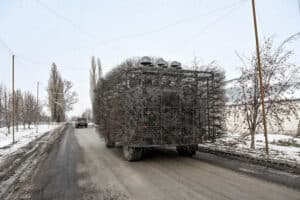The countrys space agency Roscosmos said it lost contact with the spacecraft on Saturday after it ran into trouble

Russia’s first lunar mission in decades has failed, after its Luna 25 spacecraft crashed into the moon’s surface.
The country’s space agency Roscosmos said it lost contact with the spacecraft on Saturday after it ran into an “abnormal situation” while preparing for its pre-landing orbit.
Crash
Roscosmos added the spacecraft spun into uncontrolled orbit.
“The apparatus moved into an unpredictable orbit and ceased to exist as a result of a collision with the surface of the Moon.”
“During the operation, an abnormal situation occurred on board the automatic station, which did not allow the manoeuvre to be performed with the specified parameters,” Roscosmos said in a Telegram post.
The unmanned spacecraft was aiming to be the first ever to land on the south pole of the Moon, an area scientists believe could hold important reserves of frozen water and precious elements.
ALSO READ: WATCH: NASA names astronauts to Next Moon Mission under Artemis
Moon landing
Luna 25 spacecraft was scheduled to attempt a soft lunar landing on 21 Aug. 21 near Boguslawsky crater, located approximately 70 degrees south latitude in the vicinity of the south polar region of the moon.
The Luna-25 mission launched on a Soyuz-2.1b rocket from the Vostochny Cosmodrome in Russia’s Far East on 10 August.
According to AFP, Luna-25 had been expected to stay on the Moon for a year, collecting soil samples and looking for water – an ingredient enthusiasts hope could be used to make rocket fuel for future launches and support potential colonies living there.
Cameras installed on the lander had already taken shots of the lunar surface.
Space race
Doubts have overshadowed Russia’s long-running space cooperation with the West over its military campaign in Ukraine.
While Russia has said it intends to use the International Space Station until 2028, the European Space Agency (ESA) has dropped plans to cooperate with Moscow on Moon and Mars missions.
Moscow last landed a probe, Luna-24, on the Moon in 1976 and then shifted away from lunar exploration in favour of missions to Venus and building the Mir space station, AFP reported.
ALSO READ: WATCH: SA’s first agriculture-focused microsatellite launched into orbit
Support Local Journalism
Add The Citizen as a Preferred Source on Google and follow us on Google News to see more of our trusted reporting in Google News and Top Stories.






